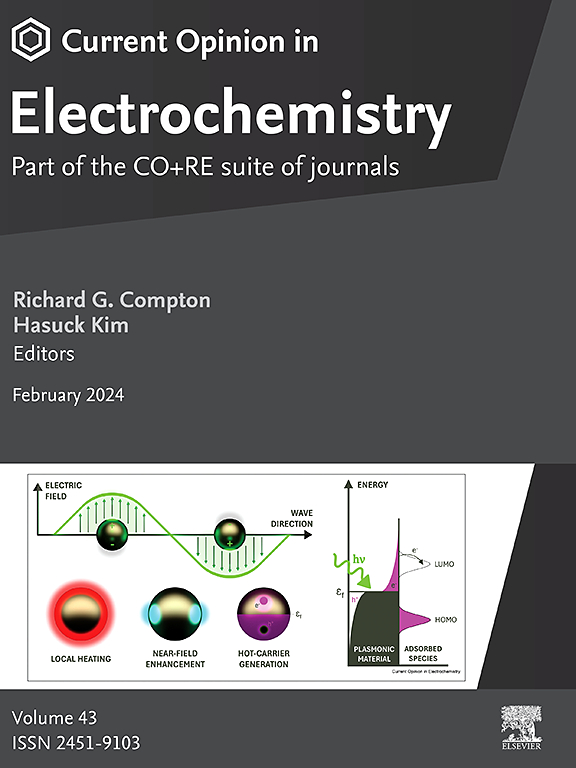Salt matters: How ionic strength and electrolytes impact redox polymer reactivity and dynamics for energy storage
IF 6.9
2区 化学
Q1 CHEMISTRY, PHYSICAL
引用次数: 0
Abstract
As the global demand for sustainable energy grows, redox-active polymers (RAPs) have emerged as promising materials for batteries due to their advantages in stability, ease of preparation, and low-cost processability. Despite factors traditionally known to impact polymer dynamics (e.g., temperature, viscosity, and structure), we posit that investigating the effect of ionic strength and/or supporting electrolyte types on the electrochemical performance of RAP systems is crucial, both in aqueous and nonaqueous systems. Here, we first highlight recent findings on RAP-electrolyte interactions, elucidating how their polyelectrolyte nature determines their redox activity. Then, we focus on strategies to enhance RAP performance for energy storage through ionic strength optimization and tailored electrolyte composition. These insights into the modulation of RAP reactivity provide a foundation for improving battery performance in both flow and stationary configurations, thus facilitating progress toward next-generation energy storage solutions.
盐的问题:离子强度和电解质如何影响氧化还原聚合物的反应性和能量储存的动力学
随着全球对可持续能源需求的增长,氧化还原活性聚合物(RAPs)因其稳定性、易于制备和低成本可加工性等优点而成为有前途的电池材料。尽管传统上已知的影响聚合物动力学的因素(如温度、粘度和结构),但我们认为研究离子强度和/或支撑电解质类型对RAP系统电化学性能的影响至关重要,无论是在水系统还是非水系统中。在这里,我们首先强调了rap -电解质相互作用的最新发现,阐明了它们的多电解质性质如何决定它们的氧化还原活性。然后,我们重点研究了通过离子强度优化和定制电解质组成来提高RAP储能性能的策略。这些关于RAP反应性调制的见解为提高电池在流动和固定配置下的性能奠定了基础,从而促进了下一代储能解决方案的发展。
本文章由计算机程序翻译,如有差异,请以英文原文为准。
求助全文
约1分钟内获得全文
求助全文
来源期刊

Current Opinion in Electrochemistry
Chemistry-Analytical Chemistry
CiteScore
14.00
自引率
5.90%
发文量
272
审稿时长
73 days
期刊介绍:
The development of the Current Opinion journals stemmed from the acknowledgment of the growing challenge for specialists to stay abreast of the expanding volume of information within their field. In Current Opinion in Electrochemistry, they help the reader by providing in a systematic manner:
1.The views of experts on current advances in electrochemistry in a clear and readable form.
2.Evaluations of the most interesting papers, annotated by experts, from the great wealth of original publications.
In the realm of electrochemistry, the subject is divided into 12 themed sections, with each section undergoing an annual review cycle:
• Bioelectrochemistry • Electrocatalysis • Electrochemical Materials and Engineering • Energy Storage: Batteries and Supercapacitors • Energy Transformation • Environmental Electrochemistry • Fundamental & Theoretical Electrochemistry • Innovative Methods in Electrochemistry • Organic & Molecular Electrochemistry • Physical & Nano-Electrochemistry • Sensors & Bio-sensors •
 求助内容:
求助内容: 应助结果提醒方式:
应助结果提醒方式:


